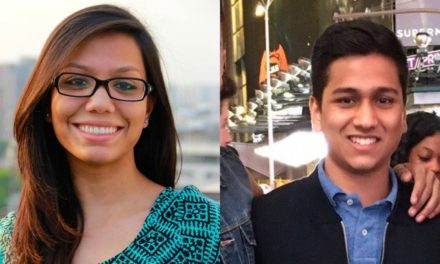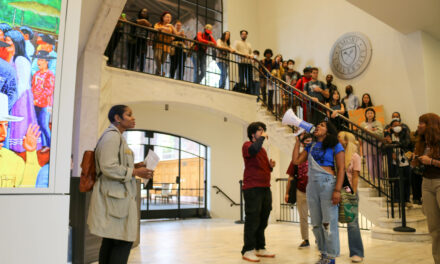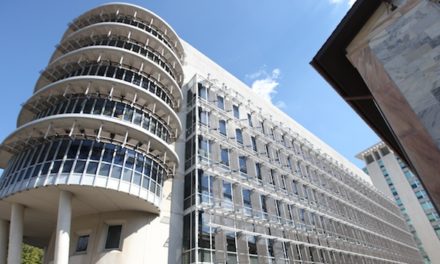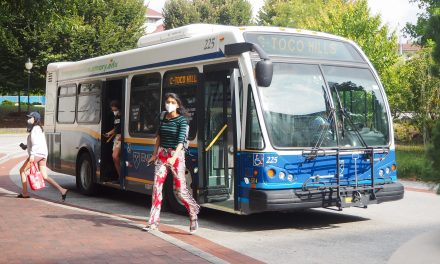“I’ve found my voice, and I now recognize that my story is important,” Willi Freire (19B) said during an April 3 panel event hosted by student group Emory’s Undocumented Students of America. Freire is a resident of the United States through the Deferred Actions for Childhood Arrivals (DACA) program.
Addressing about 80 students, faculty and community members, Freire and other speakers shared stories about the legal difficulties and emotional tolls facing immigrant families, the complications of identifying as American while legally considered undocumented and the importance of finding unity in the stories of other undocumented students.
The Wheel has excluded names and stories of those who did not want to be included in this article due to safety concerns.
During his freshman year, Freire attended a meeting hosted by Freedom at Emory University, an organization that advocates for rights of undocumented students, in hopes to learn about activism regarding undocumented immigrants. At the meeting, undocumented students introduced themselves by stating their legal status along with their name, hometown and intended major, Freire said.
“When I heard the first person say, ‘and I am a DACA recipient,’ I felt my heart absolutely sink,” Freire said. “I witnessed profound courage, bravery and palpable confidence. … I finally owned being undocumented in a group setting.”
In high school, Freire said he had difficulty explaining why he did not have a driver’s license or why he never visited his native country. He would often respond with a “white lie” that concealed his undocumented status.
Freire noted the importance of ACA, which began accepting applicants in 2012 but stopped in 2017. DACA provides temporary deportation protection and work permits for immigrants who entered the United States illegally before age 16. Freire said the program provided him with an opportunity to drive, work and attend college.
Co-President of Emory’s Undocumented Students of America Patrycja Kepa (21B) spoke about the complications that come with family members having differing legal statuses. Kepa, who was born in Greece, said her sister was born in Poland and her brother was born in the U.S.
“That means that amongst us, there are three different statuses: DACA, undocumented and U.S. citizen,” Kepa said. “This disparity of three is what makes our relationships as siblings so overly complicated.”
When Kepa and her family came to the U.S., she was able to qualify for DACA, but her sister, who is four years younger, was unable to qualify. By the time her sister reached 15 years old, the qualifying age for DACA, the Department of Homeland Security stopped accepting applicants.
“Two years ago, we used to be able to sit down and talk about everything, but now all of our conversations boil down to why I have DACA and she doesn’t,” Kepa said.
Kepa said the relationship with her younger brother is completely different from that of her sister. After Kepa’s brother was born, their mother returned to work, placing the burden of childcare on Kepa. Kepa’s brother would often look to her as a mother figure, Kepa said.
“I remember vividly one day after the 2016 election when my mom and I were discussing a possible family separation and what would happen to my brother if we were to get deported,” Kepa said. “I had to sit [my brother] down … and explain that everyone but him in our immediate family had no secure status in the U.S.”
For Matt Mach (18C), an undocumented immigrant from Poland, the threat of deportation became real for his family one year ago.
Mach said he received a phone call from his mother who said two U.S. Immigration and Customs Enforcement agents had detained Mach’s father, who was eventually deported to Poland. His brothers and mother voluntarily moved back soon after.
“My worst fear had been realized,” Mach said.
Mach said he called dozens of law firms asking if they could provide legal assistance for his father’s case but none were willing to work without pay.
Despite the treatment his family faced from the U.S. immigration system, Mach said he remains optimistic about telling his story and advocating for change.
“[American immigration authorities] will not keep me from smiling, from thinking, from celebrating, from writing, from speaking, from loving and caring for my neighbors and they certainly won’t keep me from loving myself,” Mach said. “No matter how much they try, no matter the violence they inflict on us and our families, they will never take our humanity.”
Associate Professor of Practice at the Business School Nikki Graves, who attended the event, said she was moved by the student speakers.
“As a professor, this event and hearing these stories makes me even more dedicated to doing whatever I can to support these students who are such an asset in my classroom and at Emory,” Graves said.
In January 2017, Emory announced it would not declare itself a “sanctuary campus” but would continue supporting undocumented students, the Wheel previously reported.
Former Editor-in-Chief | Isaiah Poritz (he/him) (21C) is from Salt Lake City, Utah, and majored in political science.





